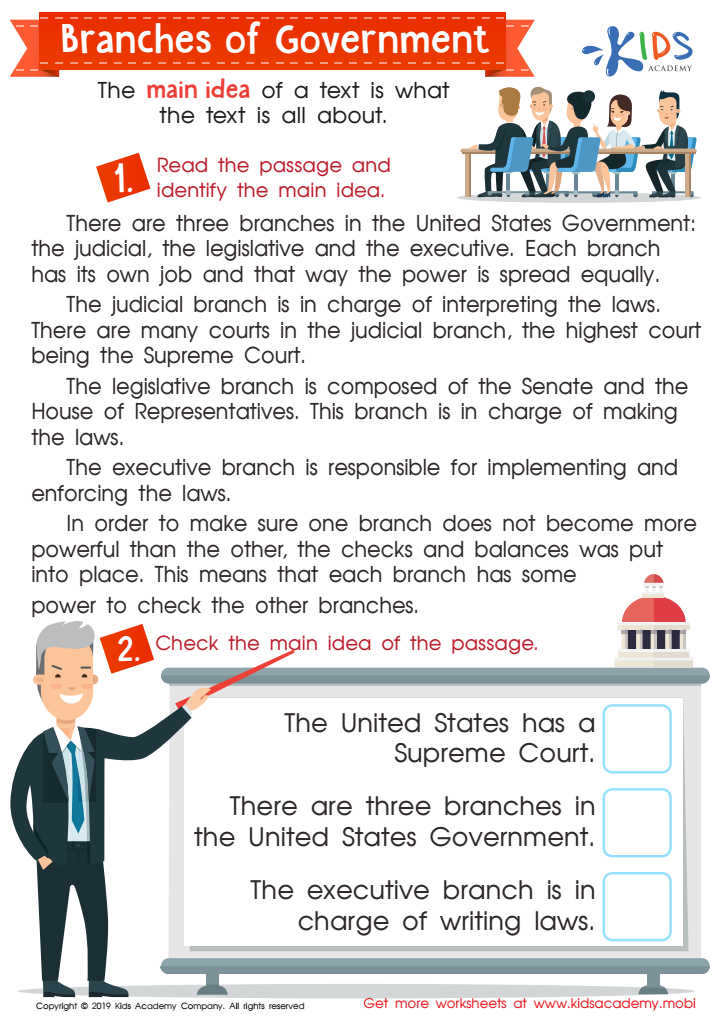Knowledge of democracy Worksheets for Kids
1 filtered results
-
From - To


Branches of the Government Worksheet
Question/Answer
Why is the Knowledge of democracy skill important for Grade 3 students?
The knowledge of democracy skill is important for Grade 3 students because it lays the foundation for understanding civic participation, rights, and responsibilities. It fosters a sense of community, encourages critical thinking about governance, and nurtures informed and engaged future citizens.
How to train the Knowledge of democracy skill in Grade 3 students learning about Reading Non-Fiction?
To train the Knowledge of Democracy skill in Grade 3 students learning about Reading Non-Fiction, introduce age-appropriate non-fiction texts that cover basic democratic principles, stories of influential leaders, and significant historical events shaping democracy. Use guided reading sessions to discuss content, emphasizing critical thinking and how democracy affects their lives.
How does the mastery of the Knowledge of democracy skill affect a student's performance at an early age?
Mastering the Knowledge of Democracy skill at an early age positively impacts a student by enhancing critical thinking, fostering a sense of responsibility and participation, and promoting understanding of rights and duties. These skills contribute to the development of well-rounded, civically engaged individuals who are better prepared to contribute to society and navigate complex social and political environments.
 Assign to the classroom
Assign to the classroom
.jpg)











